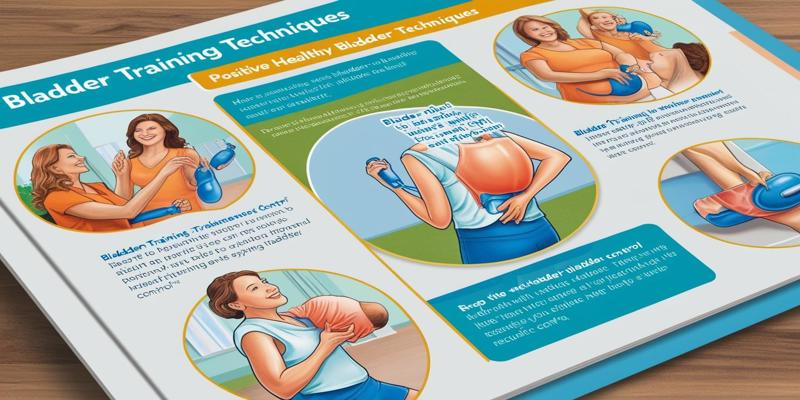Tired of that nagging neck pain that won't go away? You're not alone. Neck pain is one of those pervasive complaints that can make considerable differences in life and livelihood. In this comprehensive guide, learn how to use targeted exercises to ease neck pain, improve mobility, and enhance the quality of life. You'll understand neck discomfort from the roots, then go ahead and create an individualized exercise plan that takes ownership over neck health.
Neck Pain: Causes and Symptoms
 Today, millions worldwide suffer from neck pain. Exercises to treat it require adequate treatment, which requires knowledge of the root behind it and the signs and symptoms that arise in neck pain conditions.
Today, millions worldwide suffer from neck pain. Exercises to treat it require adequate treatment, which requires knowledge of the root behind it and the signs and symptoms that arise in neck pain conditions.
Causes Of Neck Pain and Its Symptoms
Following are some common causes of neck pain. Everything from poorly positioned posture to even the underlying life and medical conditions may cause neck pain. Some of the common causes include the following:
- Muscle strain: The overuse and jolting movements that tighten the neck muscles strain the neck muscles.
- Poor posture: Slouching or hunching for extended periods, especially while working on electronic devices, eventually strains the neck muscles.
- Injuries: Whiplash related to motor vehicle accidents and sports injuries causes neck pains.
- Degenerative disorders: Osteoarthritis or cervical spondylosis diseases degenerate neck anatomy.
- Pinched nerves: Herniated discs or bone spurs may press nerves and result in pain sensations.
Diagnosing Neck Pain Symptoms
The symptoms of neck pain must be grasped to adopt the appropriate treatment. Some of the common symptoms:
- Stiffness or limited movement of the neck
- Sharp or aching pain in the region of the neck
- Pain radiating into the shoulders, arms, or head.
- Numbness or tingling in the arms or hands, especially headaches that begin at the base of the skull.
This list helps one understand the causes and symptoms, allowing one to exercise oneself along with other modes of treatment. Identifying what may be causing neck pain allows one to develop an appropriate strategy to treat the particular issue.
Exercise and Neck Pain Treatment
 The neck bears much of the body's weight, so one will often complain of neck pain. Exercise will strengthen the muscles that support your neck, increase flexibility, and even decrease pain. The ways exercise can treat neck pain are as follows:
The neck bears much of the body's weight, so one will often complain of neck pain. Exercise will strengthen the muscles that support your neck, increase flexibility, and even decrease pain. The ways exercise can treat neck pain are as follows:
Neck Muscle Strengthening
Strengthening exercises target the muscles of your neck and upper back. They can enhance posture, reduce strain, and minimize the chances of re-injury. Examples include chin tucks, isometric neck presses, and shoulder blade squeezes. Set a regular schedule for these exercises as part of your neck health foundation.
Increasing Flexibility and Range of Motion
Stretching exercises loosen stiffness and improve neck range of motion. Gentle stretches target the muscles and connective tissues in your neck and shoulders, improving circulation and reducing tension. Try the following stretches to add to your daily routine: neck rotations, Side-to-side tilts, and Shoulder rolls.
Improving Posture and Body Awareness
Many neck pain problems are related to bad posture. Exercise can make you more aware of the positioning of your body and help you build better habits. Such exercises as yoga and Pilates are helpful in teaching alignment and body awareness. Such exercises will let you:
- * Be aware of postural imbalances and how to correct them
- * Strengthen core muscles to improve overall support
Neck Exercises to Ease Pain: Practical Ways
Relieving or at least easing neck ache is very possible by adding some neck exercises to your daily routine. The following techniques will help you win this battle against discomfort and firm up the neck muscles as well.
Neck Stretches
Begin with light stretches to loosen the muscles before working on other exercises. Slowly lean the head to one side, bringing the ear toward the shoulder. Hold for 15 to 30 seconds before leaning in the opposite direction. Gradually bring the chin toward the chest to stretch along the back of the neck. Hold for 15 to 30 seconds before returning to the original position.
Neck Rotations
Slowly and gently turn your head to the right, keep your head level, start facing forward, and then turn your head to the right as far as is comfortable. Hold for a few seconds, then return to the center. Repeat on the left side. Do 5-10 rotations to each side without overstretching.
Shoulder Blade Squeezes
While this exercise is for the upper back, it will have an indirect positive effect on the neck. Sit or stand and let your arms hang at your sides. Squeeze your shoulder blades together and hold for 5-10 seconds. Release and repeat 10-15 times. This helps improve your posture and reduce strain on your neck muscles.
Isometric Strengthening
Place your hand on the side of your head and press your head toward your hand, resisting with your neck muscles. Hold for 5-10 seconds, then relax. Repeat to the opposite side as well as forward and backward. This exercise strengthens neck muscles without excessive movement.
When to Seek Medical Attention for Persistent Neck Pain
While exercises can be rewarding for many cases of neck pain, medical attention is sometimes necessary. Being able to identify these signs will be important for effective treatment and avoidance of complications.
Red Flags: When to Seek Immediate Medical Care
If you have any of the following findings in addition to neck pain, consider seeking medical evaluation:
- Severe pain that is not relieved by bed rest or medication
- Numbness, tingling, or weakness in your arms or legs
- Difficulty with balance or coordination
- Fever or chills accompanying neck pain
- Unexplained weight loss
- Severe headaches, especially if they're new or different from your usual headaches
These symptoms might mean such severe conditions as nerve compression, injury of the spinal cord, or an infection that needs immediate medical attention.
Persistent Pain: When to Make an Appointment
If the neck pain has been relentless for more than just a few weeks, you are advised to see the doctor, especially if home remedies have already been tried. You must also call for a doctor in these events:
- The pain interferes with your regular activity as well as sleep.
- Have you experienced any recent accident or fall trauma
- Severe stiffness or limited movement accompanied by pain
- You have had cancer or some other serious medical illness
The treating professional is in the best position to conduct a thorough assessment, request all necessary investigations, and create a treatment plan that may include physical therapy, medications, and other treatments.
Monitoring Your Symptoms: When to Reassess
Even if your neck pain initially improves with exercises and self-care, staying tuned is wise. If your symptoms have changed and worsened, do not waste any moment for a medical consultation. Quite often, it leads to an improved prognosis, apart from the fact that such pain could be prevented from being converted into a chronic entity.
Conclusion
Targeted exercises can go a long way in managing and alleviating neck pain. These exercises improve strength, enhance flexibility, and enable better posture, easing discomfort while preventing further complications. Don't let neck pain hold you back; move into the healing power of exercise and take your comfort and mobility back today.











